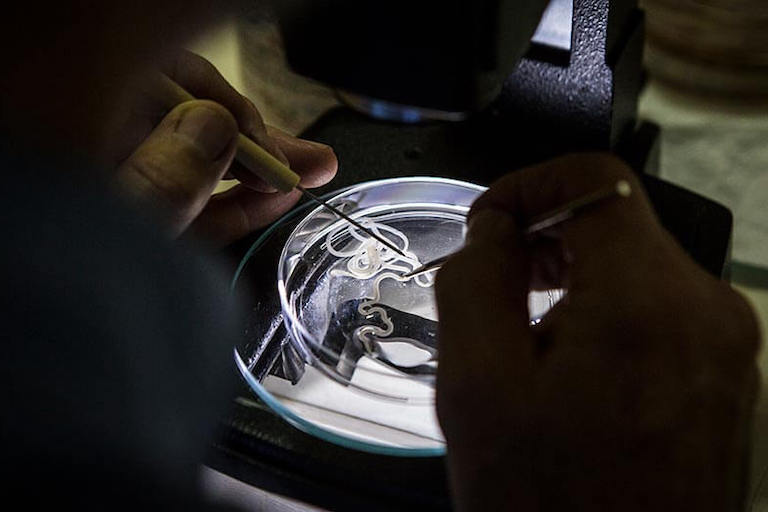An interdisciplinary team of researchers at Michigan State University will work to help eradicate Guinea worm disease, in a project for The Carter Center. Their work will serve the Guinea Worm Eradication Program in Chad, a country where infections caused by Guinea worm larvae remain a serious issue.
For the research project, MSU Department of Community Sustainability Professor John Kerr, Ph.D., will partner with Professor Maria Knight Lapinski, Ph.D., who works in the Department of Communication and Michigan AgBio Research, and Professor Jinhua Zhao, Ph.D., who works in the Department of Economics and the Department of Agriculture, Food and Resource Economics. They received a grant from The Carter Center for a project called the Guinea Worm Incentive Program in Chad: Combining Economic and Communication Science to Identify Solutions.
The research project is intended to guide The Carter Center in its work to eradicate Guinea worm disease, which was nearly eradicated a decade ago but has made a resurgence in some sub-Saharan African countries. In the Marabe Area of Chad, Guinea worm disease in humans and animals is a serious issue. The infection is contracted mainly through consuming water and fish or fish guts that are contaminated with Guinea worm larvae.
Since 1986, The Carter Center has led the international campaign to eradicate Guinea worm disease, working closely with ministries of health and local communities, the U.S. Centers for Disease Control and Prevention, the World Health Organization, UNICEF, and many others. According to The Carter Center website, Guinea worm disease could become the second human disease in history, after smallpox, to be eradicated. It would be the first parasitic disease to be eradicated and the first disease to be eradicated without the use of a vaccine or medicine.
Among many efforts to control the disease, The Carter Center implemented a program of financial incentives to reward behaviors that may limit the spread of Guinea worm disease. These behaviors include reporting suspected cases in humans, dog and cats; restricting the movement of dogs and cats to help prevent the spread of infections, and safely disposing of the entrails of fish caught from waterways.
While the incentive program helped the people of Chad make progress, it also had unintended consequences. Some villagers considered the financial incentives a means of living and started to take dogs home that they could not feed. As a result, the animals wander around to find food, which increases their risk of infection or serving as an alternative host of the Guinea worm.
To conduct this work, MSU researchers received a grant from The Carter Center, a nongovernmental organization that helps improve lives by resolving conflicts, advancing democracy, and preventing diseases. The research team will collaborate with Director Adam Weiss and Epidemiologist Maryann Delea, Ph.D., who both work for the Guinea Worm Eradication Program at The Carter Center. Other contributors to the project include Minwoong Chung, Ph.D., a postdoctoral research associate in the Department of Communication, and Jessica Crawford, a master’s student in the Department of Community Sustainability.
Utilizing research on financial incentives and communication science, MSU researchers have reviewed the efforts made to encourage behaviors that reduce the spread of Guinea worm disease, such as early reporting of infections and the containment of cases.
Going forward, they will help guide the design of future efforts to promote behaviors that will help eradicate the disease in Chad, minimizing any adverse effects. Due to the global pandemic, the research will consist of a desk study, contributing to the design of fieldwork in the affected areas. The Carter Center will carry out the recommendations when possible and analyze the resulting data.
Findings from the project may contribute to reducing the spread of Guinea worm disease in Chad and other affected countries in sub-Saharan Africa. The project addresses a real-world problem that spans across human, animal, and ecological health. It is slated to be completed in 2021.
For more information about the project, click here.
By Melissa Priebe and Minwoong Chung
